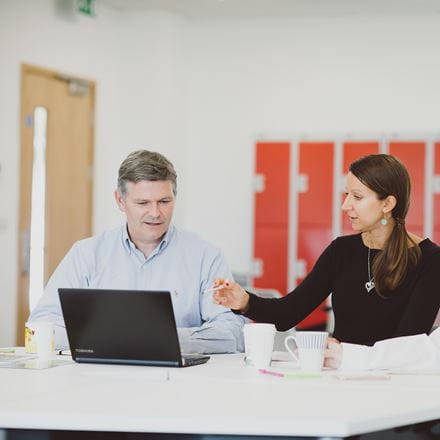As an apprentice, you will enrol on a three-year BEng Electronic Engineering degree pathway that includes 28 weeks of teaching each academic year at our Colchester Campus. You will return to the workplace when not at university where your employer will provide further vocational learning outcomes in line with the Embedded Electronic Systems Design and Development Engineer Degree Apprenticeship Standard.
Course content and delivery
The course starts in October each year and is completed over three years through a mixture of on-campus and work-based learning. Apprentices will spend 28 weeks per year in lectures and classes at our Colchester Campus and the rest of the time in the workplace. You'll be assigned a workplace mentor to help you complete the workplace learning.
During your time with us we’ll train your apprentice in electronics and embedded systems, and how to apply them to the design of circuits and devices that:
- provide useful functions
- can be produced at competitive costs
- are reliable and safe to use
Course modules
See the full course module details
Course structure
As part of the assessment plan, you will complete a mixture of coursework and exams, with exams being taken at our Colchester Campus.
Entry requirements
To be eligible for an Apprenticeship you will need to be in current employment within a relevant occupational role with agreement from the employer to be supported.
Our minimum grade requirements are:
- A levels: BBB-BBC (including Mathematics or Further Mathematics)
- GCSE Science: C
- GCSE English Language: C
- BTEC: DDM-DMM
- IB: 20-29 points, including Higher Level Mathematics grade 5 and Standard Level Science grade 4
There are no tuition fees to pay as your employer pays these for you this means you will earn while you learn.








